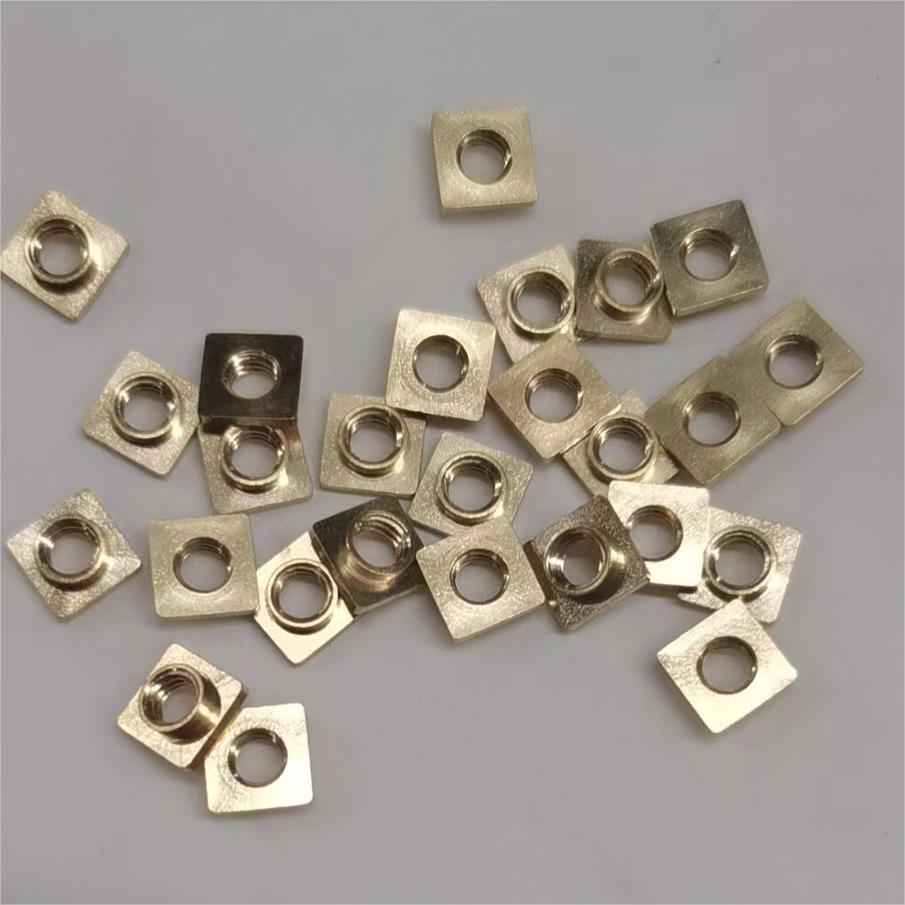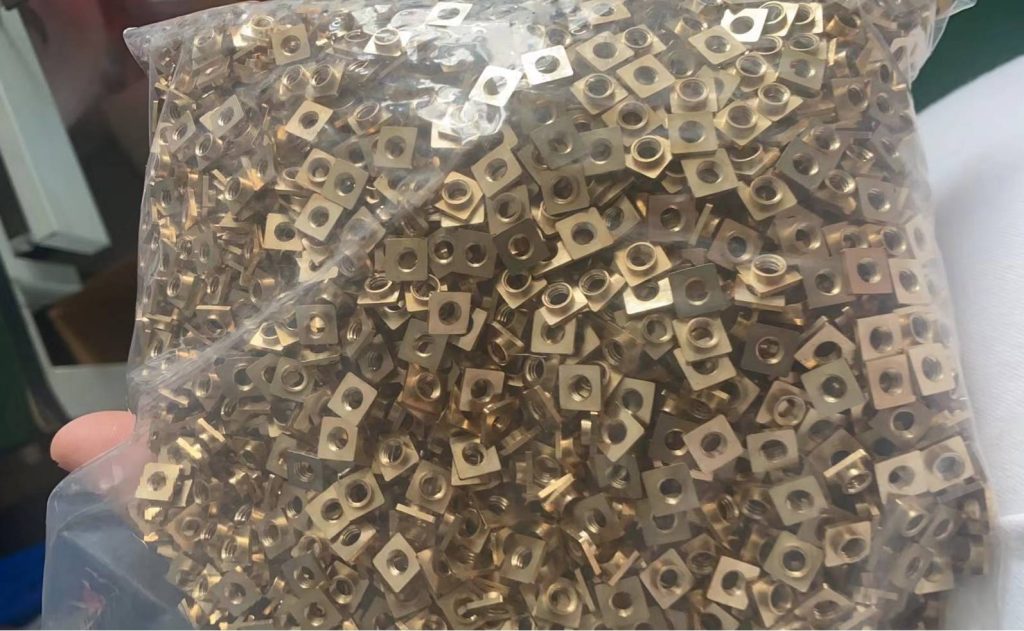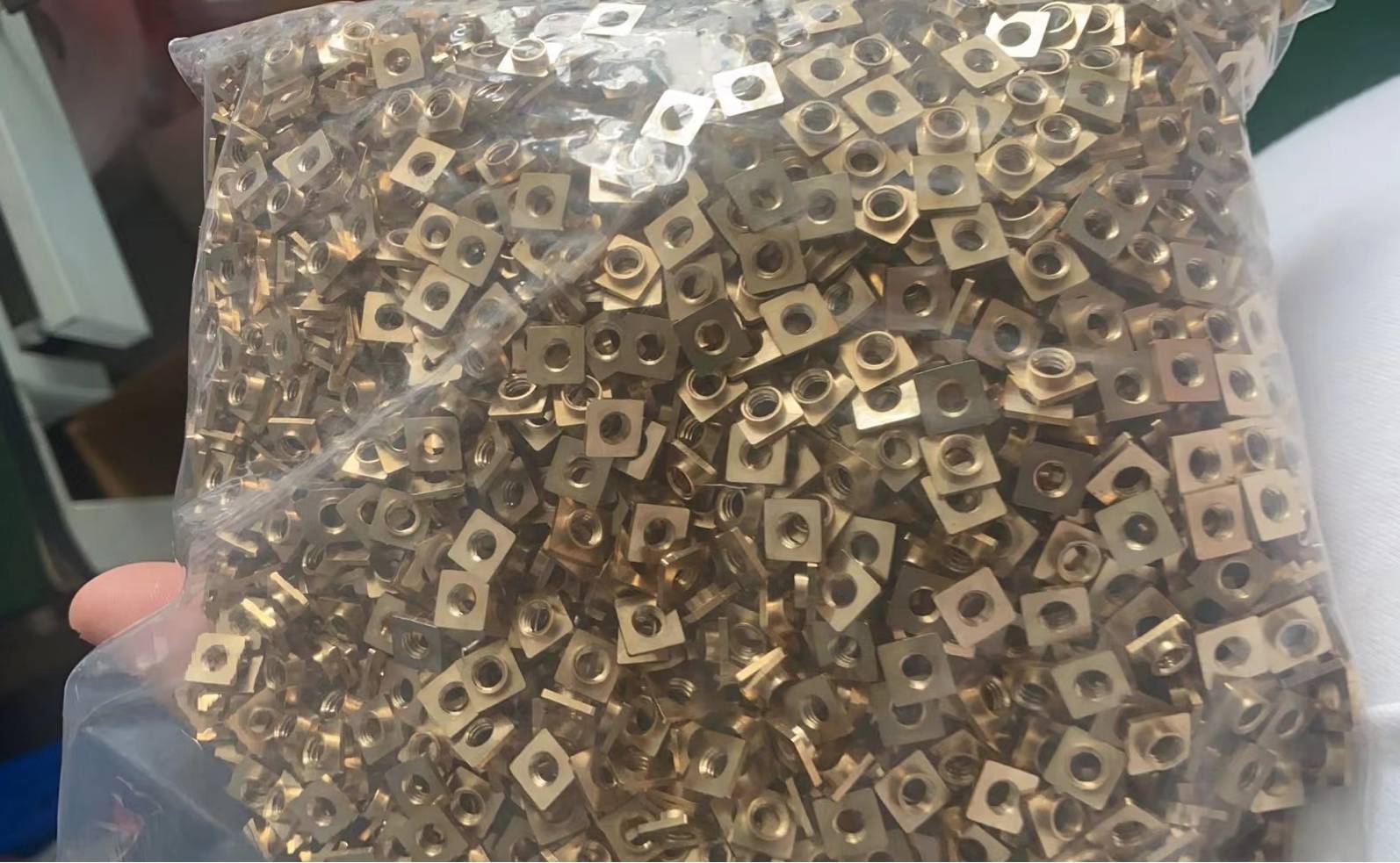Custom CNC machining Brass Parts
- Material: Brass
- Size: 7*7*2.5 mm
- Process: CNC milling
- Surface treatment: Machined surface
How does the hardness and machinability of brass affect the milling process?
The hardness and machinability of brass significantly influence the milling process in various ways. Here’s how they affect it:
Hardness:
Tool Wear:
- Higher Hardness: Harder brass alloys tend to wear out cutting tools faster. This means that more frequent tool changes or tool sharpening may be required, increasing downtime and operational costs.
- Lower Hardness: Softer brass alloys are gentler on tools, leading to longer tool life and reduced maintenance.
Cutting Speed and Feed Rate:
- Higher Hardness: The cutting speed and feed rate need to be reduced when milling harder brass to avoid excessive tool wear and potential damage.
- Lower Hardness: Softer brass can be milled at higher speeds and feed rates, enhancing productivity.
Surface Finish:
- Higher Hardness: Harder brass can produce a better surface finish due to its ability to be cut cleanly without smearing.
- Lower Hardness: Softer brass may produce a rougher surface finish due to its tendency to smear rather than cut cleanly.
Machinability:
Chip Formation:
- Good Machinability: Brass alloys with good machinability produce short, manageable chips that are easy to remove, reducing the risk of chip clogging and improving the overall milling process.
- Poor Machinability: Alloys with poor machinability can produce long, stringy chips that can clog the milling machine, leading to potential damage and increased maintenance needs.
Heat Generation:
- Good Machinability: Efficient cutting with minimal heat generation, reducing the risk of thermal damage to both the workpiece and the cutting tool.
- Poor Machinability: More heat generated during milling, which can lead to thermal expansion, affecting dimensional accuracy and potentially damaging the tool.
Tool Material and Coatings:
- Good Machinability: Standard tool materials and coatings are often sufficient for machining brass with good machinability.
- Poor Machinability: Special tool materials and coatings may be required to handle the increased wear and heat generation associated with poor machinability, increasing tooling costs.
Coolant Use:
- Good Machinability: Less reliance on coolant, as the material can be machined effectively with minimal lubrication.
- Poor Machinability: Greater need for coolant to manage heat and improve chip removal, adding complexity and cost to the milling process.
Overall, understanding the specific hardness and machinability of the brass alloy being milled is crucial for optimizing the milling process, selecting appropriate tools, and setting the correct machining parameters to achieve the desired results efficiently and cost-effectively.
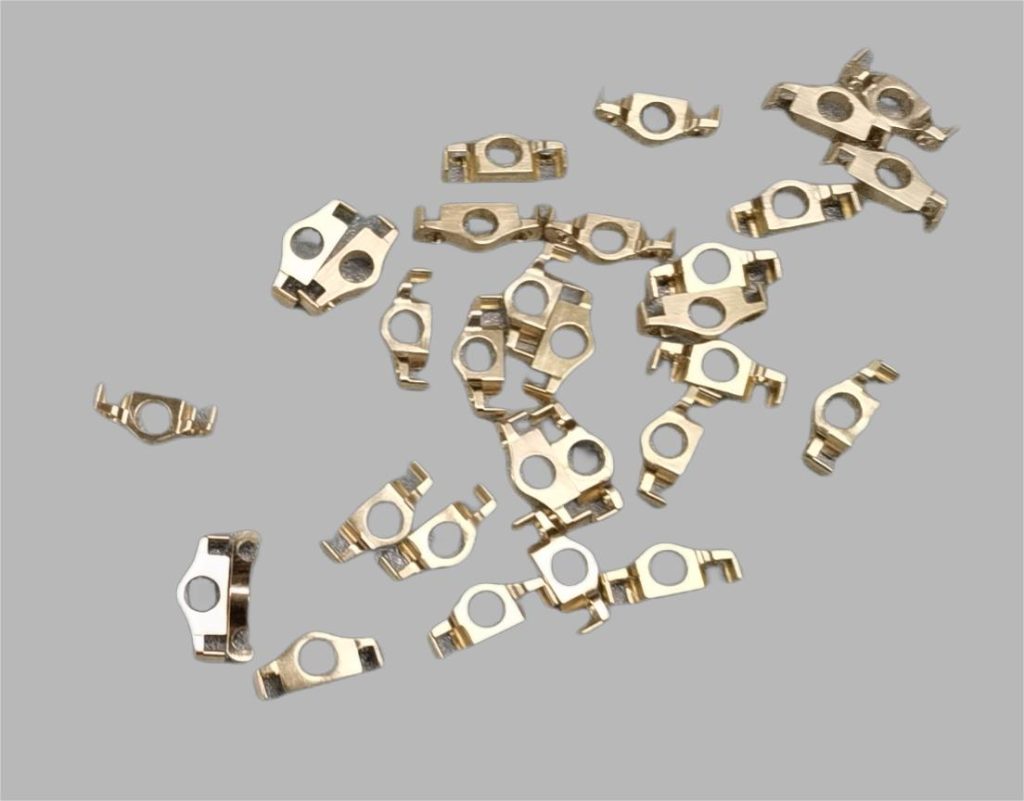
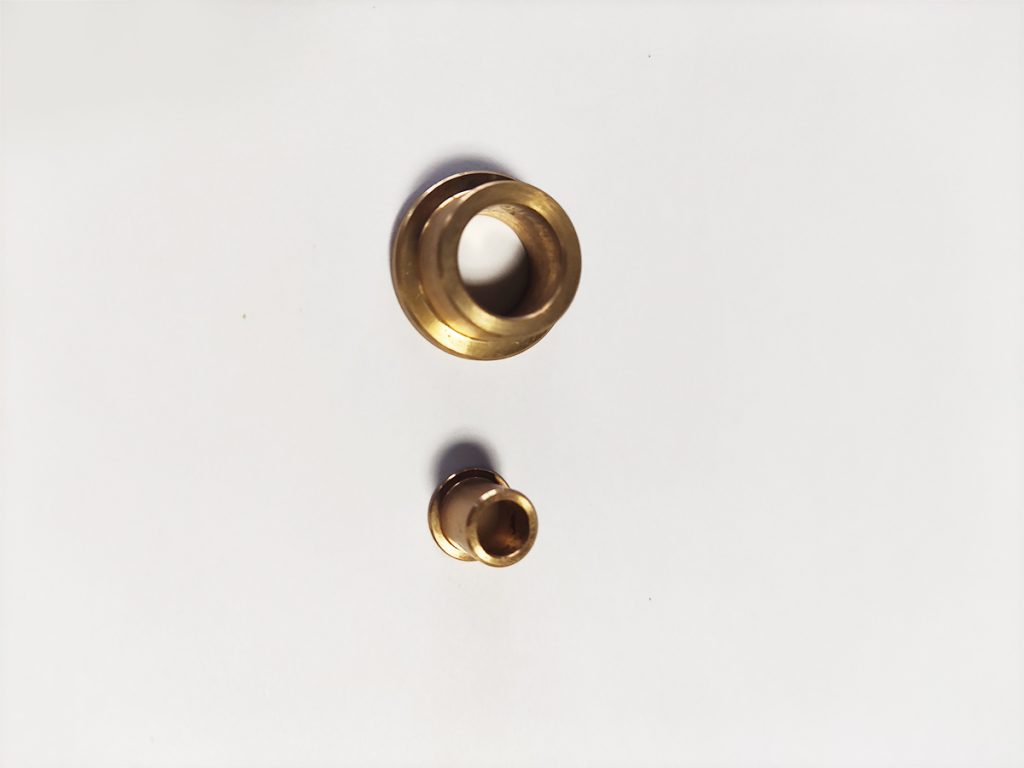
What are the Representative Types of Brass from Hardness and Machinability?
Brass alloys are categorized into different types based on their composition, which influences their hardness and machinability. Here are some representative types of brass, highlighting their typical hardness and machinability characteristics:
| Alloy | Composition | Hardness (Rockwell B) | Machinability | Applications |
| C36000 | Cu 60%, Pb 3%, Fe 0.35%, Zn Bal. | 78-90 | Excellent | Fasteners, valve stems, gears |
| C26000 | Cu 70%, Zn 30% | 55-73 | Good | Ammunition casings, hardware, automotive components |
| C28000 | Cu 60%, Zn 40% | 30-55 | Fair | Architectural metalwork, marine hardware |
| C38500 | Cu 57-60%, Pb 2.5-3.5%, Fe 0.35%, Sn 0.5%, Zn Bal. | 70-83 | Good | Decorative trim, hardware, fittings |
| C46400 | Cu 60%, Sn 0.75%, Zn 39.2% | 83-91 | Fair | Marine hardware, propeller shafts |
Each of these brass alloys offers a balance of hardness and machinability that makes them suitable for different applications and machining requirements.
JTR can provide CNC machining service for any brass alloy especially 360 Brass. We have 70 state-of-the-art CNC machining centers and can provides a comprehensive suite of precision CNC machining services, including milling, turning, drilling, and grinding. Our brass CNC machining capabilities allow us to produce high-quality brass parts and components with exceptional accuracy and precision, fully adhering to customer design specifications or drawings. Feel free to contact us for your needs.


